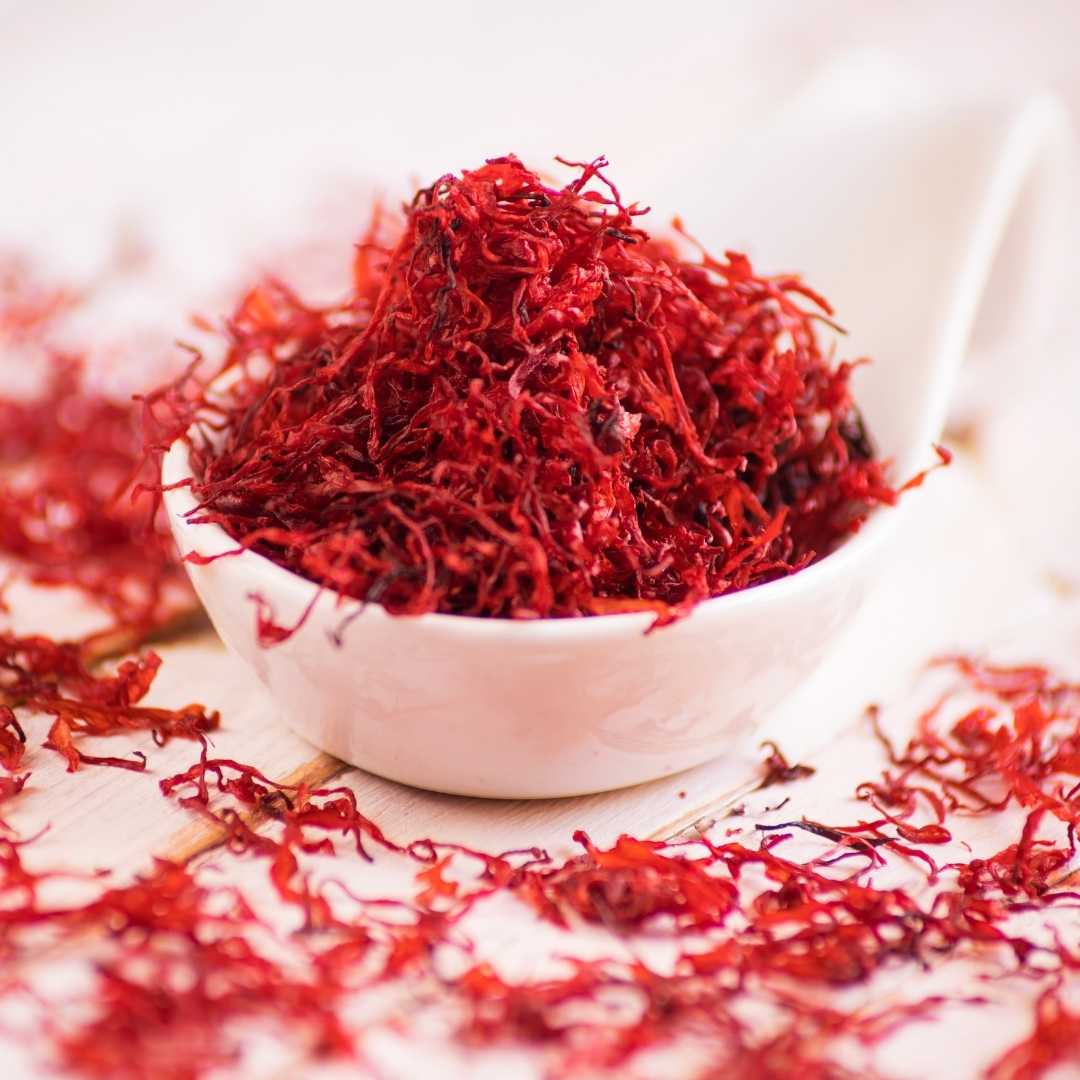
Saffron is a spice derived from the Crocus sativus flower, which is related to the lily. Saffron is derived from the stigma and styles — known as threads — found within the blossom itself.
Because of the difficulty in harvesting, saffron is quite expensive. Farmers must hand-pick the tiny threads from each blossom.
The threads are then heated and cured to bring out the flavor of the saffron. Because of this additional work, saffron is one of the most expensive spices in the world.
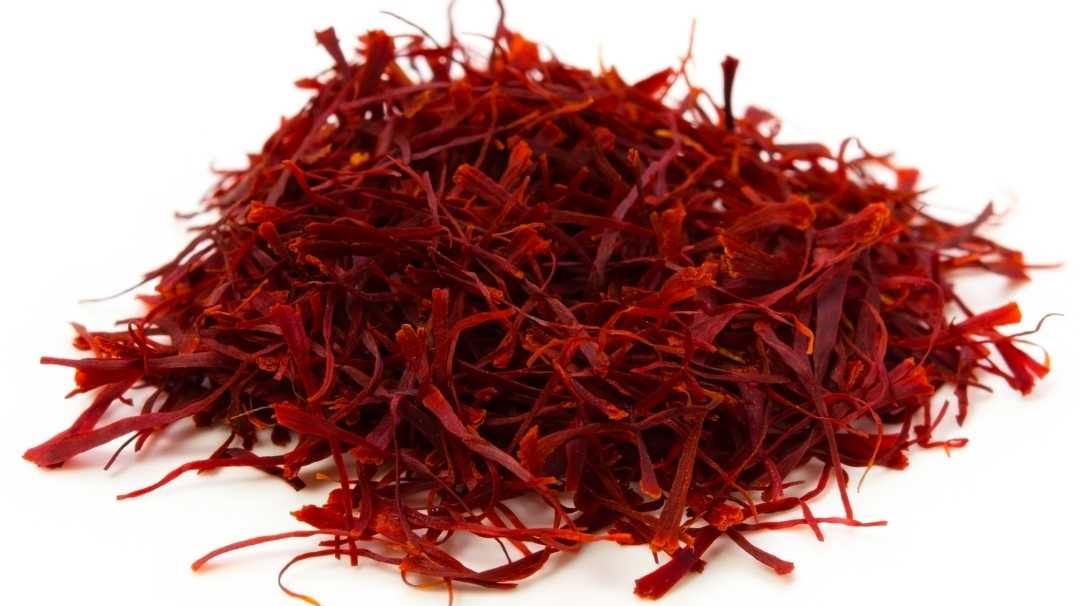
The benefits of Saffron includes:
The majority of saffron's health benefits are related to its high amounts of particular antioxidants.
According to a 2015 study, the main active antioxidants are:
- Crocin
- Picrocrocin
- Safranal
Kaempferol and crocetin are two more chemicals.
These antioxidants aid in the body's battle against oxidative stress and free radicals. Antioxidants such as these may help safeguard a person's health because oxidative stress and free radicals play a role in the development of many health disorders, including cancer and heart disease.
The antioxidants included in saffron may help to protect the body against nervous system problems.
According to 2015 research, chemicals in saffron, such as crocin, appear to lower inflammation and oxidative damage in the brain, perhaps leading to positive effects.
According to a study published in the journal Antioxidants, saffron may aid with Alzheimer's symptoms due to its memory-enhancing characteristics as well as its antioxidant and anti-inflammatory properties.
People with mild-to-moderate Alzheimer's who took saffron for 22 weeks achieved cognitive benefits comparable to those seen with the treatment donepezil, and they had fewer adverse effects.
While this is preliminary evidence to support the medical use of saffron, researchers stated that further clinical trials could help back up these assertions.
According to emerging data, Saffron may also assist boost mood and be a valuable complement to depression treatment.
A study published in the Journal of Behavioral and Brain Science discovered that a saffron extract raised dopamine levels in the brain without affecting other brain hormones like serotonin.
In other studies, ingesting 30 milligrams (mg) of saffron daily may have similar effects to medications that treat mild-to-moderate depression, such as imipramine and fluoxetine.
Although some people prescribe saffron as a complementary therapy for mood enhancement, it is still too early to recommend it for treating depression symptoms.
Saffron may also increase both male and female sex drive and sexual function.
Researchers examined the effects of saffron on male infertility issues and discovered that, while it improved erectile dysfunction and general sex drive, it had no effect on the survivability of the sperm.
An older study from 2012 investigated the impact on women who had experienced sexual dysfunction as a result of taking the antidepressant fluoxetine. Women who took 30 mg of saffron daily for four weeks had more sexual desire and vaginal lubrication than those who took a placebo.
Saffron may also help to alleviate premenstrual syndrome symptoms (PMS).
A 2015 review examined the literature on saffron and PMS symptoms. Women aged 20 to 45 who took 30 mg of saffron daily experienced fewer symptoms than those who took a placebo.
Furthermore, women who only smelt saffron for 20 minutes had decreased levels of the stress hormone cortisol in their system, which could reduce PMS symptoms.
There is also some evidence that saffron may aid in weight loss and appetite suppression.
According to a study published in the Journal of Cardiovascular and Thoracic Research, consuming a saffron extract helped persons with coronary artery disease reduce their BMI, total fat mass, and waist circumference.
Those who took the supplement also had less appetite than those in the placebo group.
In general, consuming saffron poses no risk. Cooking with saffron is a terrific way to include it in your diet without consuming too much. It usually is safe to consume up to 1.5 grams of saffron daily, but ingesting too much can be hazardous. 5 g is considered a hazardous dose by researchers.
Extremely high doses may be riskier for certain people. For example, the authors of one study state that pregnant women should avoid consuming more than 5 g of saffron each day since it stimulates the uterus.
Allergic responses could occur. Anyone who develops symptoms of an allergic reaction after consuming saffron should consult a physician.
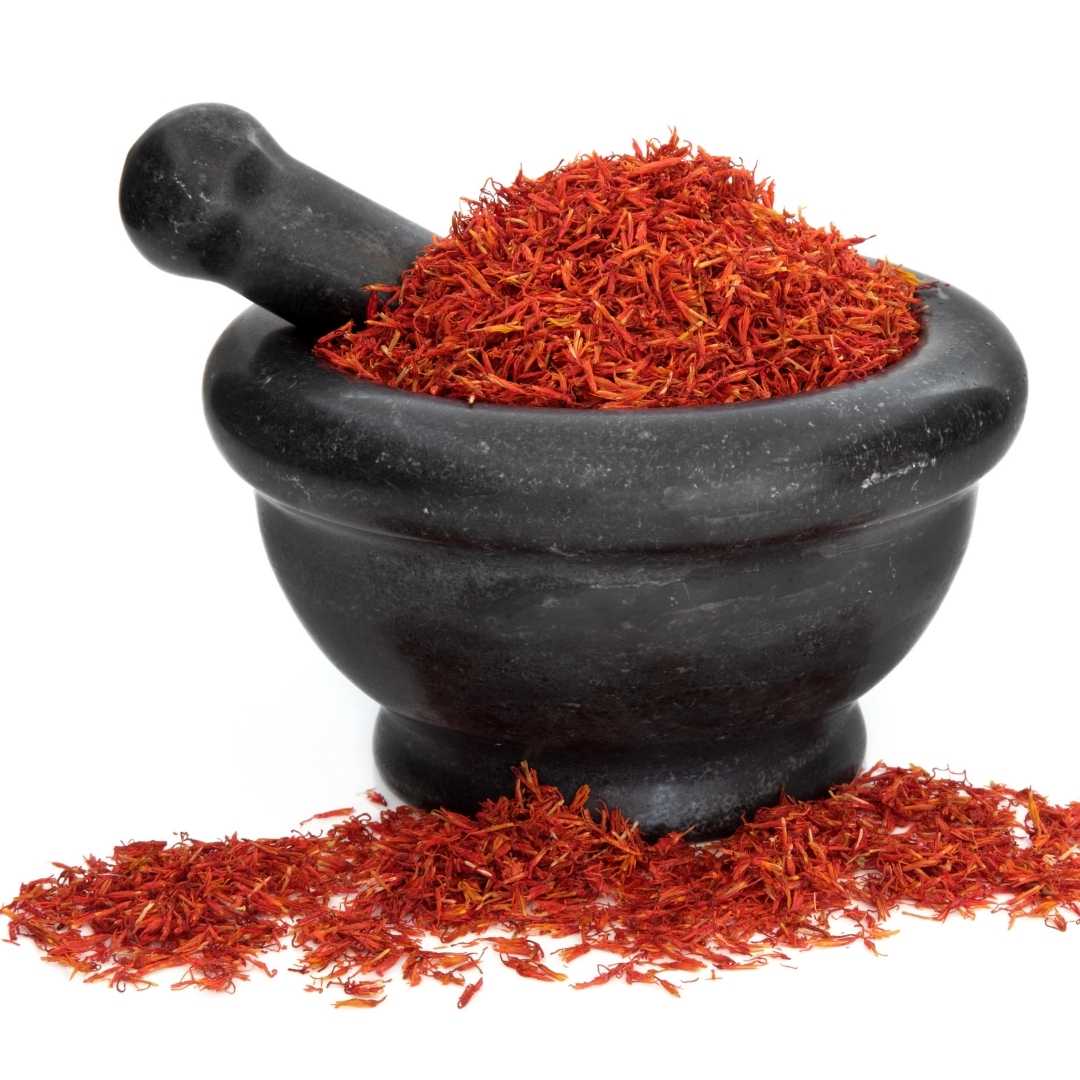
A few strands of saffron in a cup of hot water is an easy way to add saffron to a meal. This extracts the most of the taste from the saffron. At the end of cooking, add both the water and the saffron to a savory meal.
Saffron is also becoming more popular as a supplement, most commonly in the form of powdered stigmas in capsules. Before using any new supplements, it is critical to read the instructions on the container and consult with a doctor.
Saffron is a costly and old herb. It includes antioxidant properties that may help lessen the risk of some chronic illnesses linked to oxidative stress.
There is little evidence that these antioxidants are any more useful to the body than those obtained from eating plenty of fruits and vegetables.
Although additional research is needed, saffron may help enhance mood, boost sexual function, and minimize PMS symptoms in certain people.
Amchur Restaurant & Bar is one of the popular Indian restaurants which provides not only Indian cuisines but also Nepalese and Oriental cuisines with a contemporary approach which are not only healthy but also immensely delicious to the customers who have visited and dined at the restaurant. Amchur Restaurant & Bar provides dine-in service along with takeaway and delivery service. If you like to try out the takeaway or delivery you can place an order by clicking here. You can also reserve a table for your family or friends by clicking here.
-
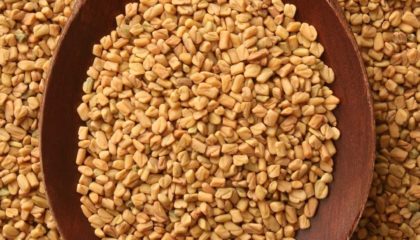 Read more +
July 25, 2022 By Amchur Restaurant in Spices
Read more +
July 25, 2022 By Amchur Restaurant in Spices
What are Fenugreek and its benefits?
-
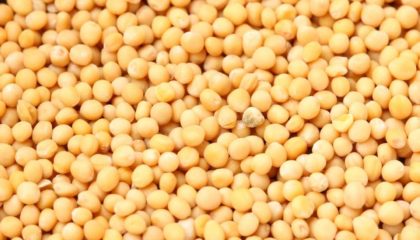 Read more +
July 21, 2022 By Amchur Restaurant in Spices
Read more +
July 21, 2022 By Amchur Restaurant in Spices
What are Mustard seeds and their benefits?
-
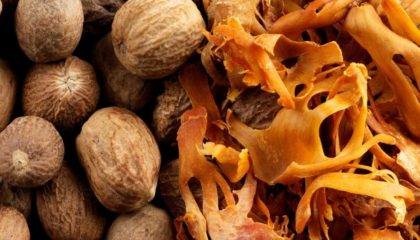 Read more +
July 18, 2022 By Amchur Restaurant in Spices
Read more +
July 18, 2022 By Amchur Restaurant in Spices
What are Nutmeg & Mace and its benefits?
-
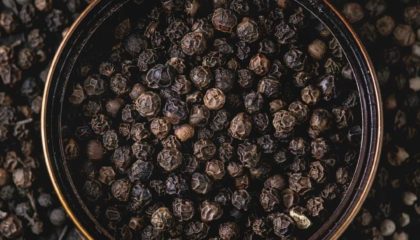 Read more +
July 14, 2022 By Amchur Restaurant in Spices
Read more +
July 14, 2022 By Amchur Restaurant in Spices
What are black pepper and its benefits?
-
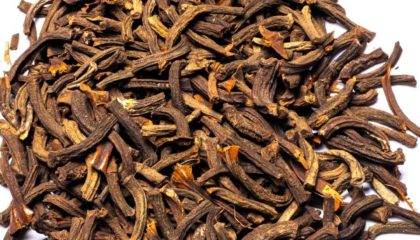 Read more +
July 11, 2022 By Amchur Restaurant in Spices
Read more +
July 11, 2022 By Amchur Restaurant in Spices
What are Cassia bark and its benefits?
-
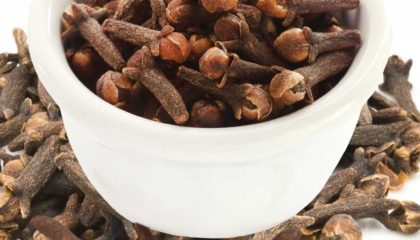 Read more +
July 7, 2022 By Amchur Restaurant in Spices
Read more +
July 7, 2022 By Amchur Restaurant in Spices
What are Clove and its benefits?
-
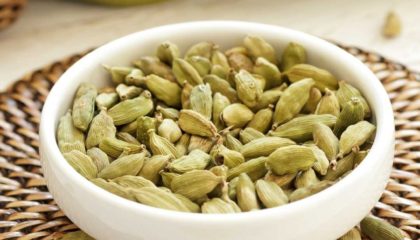 Read more +
July 4, 2022 By Amchur Restaurant in Spices
Read more +
July 4, 2022 By Amchur Restaurant in Spices
What are Cardamom and its benefits?
-
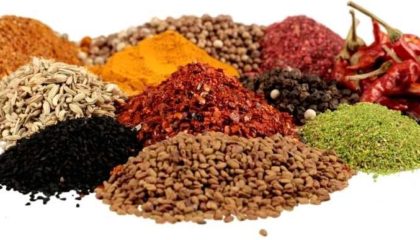 Read more +
June 30, 2022 By Amchur Restaurant in Spices
Read more +
June 30, 2022 By Amchur Restaurant in Spices
Essential Spices Used in Indian Restaurants
-
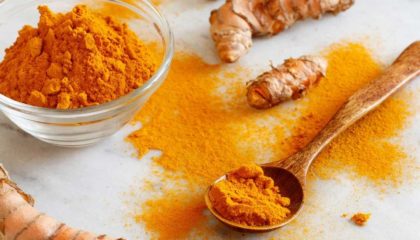 Read more +
June 27, 2022 By Amchur Restaurant in Spices
Read more +
June 27, 2022 By Amchur Restaurant in Spices
What is Turmeric and its benefits?
-
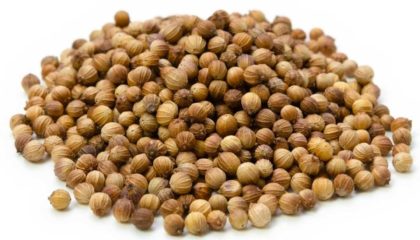 Read more +
June 24, 2022 By Amchur Restaurant in Spices
Read more +
June 24, 2022 By Amchur Restaurant in Spices
What Is Coriander and its benefits?

You must be logged in to post a comment.